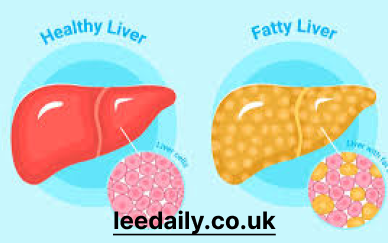Fatty liver disease, also known as hepatic steatosis, is a condition where excess fat builds up in the liver. While it can be serious, it is often reversible with the right lifestyle changes. Here are ten effective strategies to help reverse fatty liver disease and improve overall liver health.
Read more Top Tips for Making the Most of Your Jet2Holidays Experience in 2024
1. Adopt a Healthy Diet
Eating a balanced diet is crucial for liver health. Focus on incorporating whole foods, such as fruits, vegetables, whole grains, lean proteins, and healthy fats. Avoid processed foods, sugary drinks, and high-fat foods that can contribute to liver fat accumulation.
- Tip: Follow a Mediterranean diet, which is rich in vegetables, fruits, whole grains, and healthy fats like olive oil.
2. Limit Sugar and Refined Carbs
High intake of sugar and refined carbohydrates can lead to increased fat deposition in the liver. Reduce consumption of sweets, sugary beverages, white bread, and pasta. Opt for complex carbohydrates like whole grains, which are digested more slowly and help maintain stable blood sugar levels.
- Tip: Replace sugary snacks with fruits and choose whole-grain options for bread and pasta.
3. Increase Physical Activity
Regular exercise helps reduce liver fat, promotes weight loss, and improves overall health. Aim for at least 150 minutes of moderate-intensity aerobic exercise or 75 minutes of vigorous-intensity exercise per week, along with muscle-strengthening activities.
- Tip: Incorporate activities like brisk walking, cycling, swimming, or strength training into your routine.
4. Maintain a Healthy Weight
Losing weight is one of the most effective ways to reduce liver fat. Aim for a gradual weight loss of 1-2 pounds per week through a combination of healthy eating and regular exercise. Even a modest weight loss of 5-10% of your body weight can significantly improve liver health.
- Tip: Set realistic weight loss goals and track your progress to stay motivated.
5. Avoid Alcohol
Alcohol consumption can exacerbate fatty liver disease. If you have fatty liver, it’s best to avoid alcohol completely. If abstaining entirely is challenging, aim to reduce your intake as much as possible.
- Tip: Replace alcoholic beverages with healthier options like water, herbal teas, or sparkling water with a splash of citrus.
6. Stay Hydrated
Drinking plenty of water helps maintain liver function and aids in detoxification. Aim for at least eight glasses of water a day to keep your body hydrated and support liver health.
- Tip: Carry a water bottle with you and set reminders to drink water throughout the day.
7. Limit Intake of Saturated Fats
Saturated fats, found in red meat, full-fat dairy products, and fried foods, can increase liver fat. Replace these with healthier fats, such as those found in fish, nuts, seeds, and olive oil.
- Tip: Choose lean cuts of meat, and cook with healthy oils like olive oil instead of butter or lard.
8. Manage Diabetes and Cholesterol
High blood sugar and cholesterol levels can contribute to fatty liver disease. Monitor and manage these conditions through medication, diet, and lifestyle changes to protect your liver.
- Tip: Regularly check your blood sugar and cholesterol levels and follow your healthcare provider’s recommendations.
9. Get Enough Sleep
Adequate sleep is essential for overall health, including liver function. Aim for 7-9 hours of quality sleep per night to support your body’s healing and detoxification processes.
- Tip: Establish a regular sleep routine and create a relaxing bedtime environment to improve sleep quality.
10. Consider Supplements
Certain supplements may help improve liver health, such as vitamin E, omega-3 fatty acids, and milk thistle. However, always consult with a healthcare provider before starting any new supplements.
- Tip: Discuss with your doctor the potential benefits and risks of supplements for your specific condition.
Conclusion
Reversing fatty liver disease requires a commitment to healthier lifestyle choices. By adopting these ten strategies, you can improve your liver health and overall well-being. Always consult with your healthcare provider before making significant changes to your diet, exercise routine, or medication regimen. With dedication and the right approach, you can effectively manage and reverse fatty liver disease.
